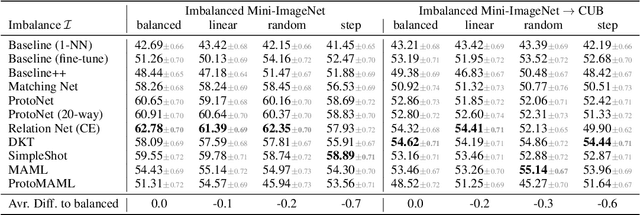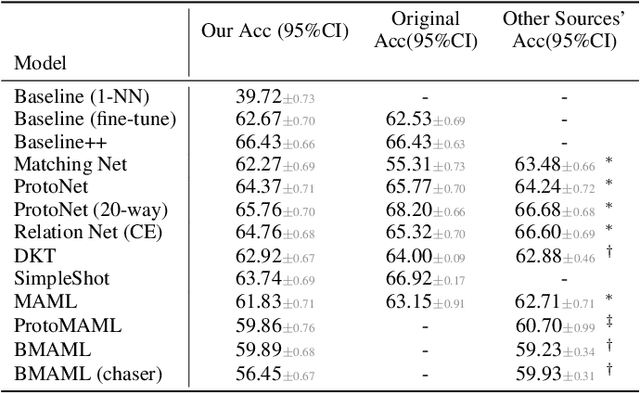Few-Shot Learning with Class Imbalance
Paper and Code
Jan 07, 2021



Few-shot learning aims to train models on a limited number of labeled samples given in a support set in order to generalize to unseen samples from a query set. In the standard setup, the support set contains an equal amount of data points for each class. However, this assumption overlooks many practical considerations arising from the dynamic nature of the real world, such as class-imbalance. In this paper, we present a detailed study of few-shot class-imbalance along three axes: meta-dataset vs. task imbalance, effect of different imbalance distributions (linear, step, random), and effect of rebalancing techniques. We extensively compare over 10 state-of-the-art few-shot learning and meta-learning methods using unbalanced tasks and meta-datasets. Our analysis using Mini-ImageNet reveals that 1) compared to the balanced task, the performances on class-imbalance tasks counterparts always drop, by up to $18.0\%$ for optimization-based methods, and up to $8.4$ for metric-based methods, 2) contrary to popular belief, meta-learning algorithms, such as MAML, do not automatically learn to balance by being exposed to imbalanced tasks during (meta-)training time, 3) strategies used to mitigate imbalance in supervised learning, such as oversampling, can offer a stronger solution to the class imbalance problem, 4) the effect of imbalance at the meta-dataset level is less significant than the effect at the task level with similar imbalance magnitude. The code to reproduce the experiments is released under an open-source license.
 Add to Chrome
Add to Chrome Add to Firefox
Add to Firefox Add to Edge
Add to Edge